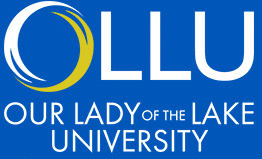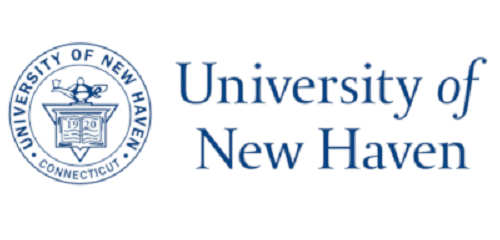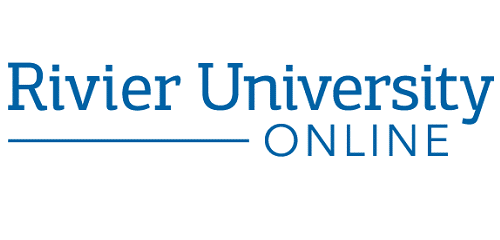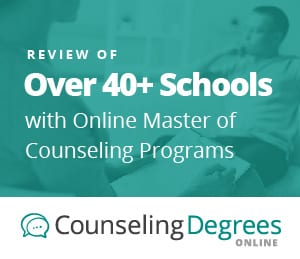 Walden University : MS in Clinical Mental Health Counseling (CACREP Accredited, six specializations to choose from)
Walden University : MS in Clinical Mental Health Counseling (CACREP Accredited, six specializations to choose from) Walden University : MS Dual Degree in Clinical Mental Health Counseling and School Counseling (CACREP Accredited, six specializations to choose from)
Walden University : MS Dual Degree in Clinical Mental Health Counseling and School Counseling (CACREP Accredited, six specializations to choose from) Capella University : MS in Clinical Mental Health Counseling (CACREP accredited. No GMAT or GRE required.)
Capella University : MS in Clinical Mental Health Counseling (CACREP accredited. No GMAT or GRE required.) Liberty University : MA: Clinical Mental Health Counseling (CACREP Accredited) (Online with required intensives)
Liberty University : MA: Clinical Mental Health Counseling (CACREP Accredited) (Online with required intensives) Grand Canyon University : Master's Degree in Counseling (Affordable Program with No Out of State Tuition)
Grand Canyon University : Master's Degree in Counseling (Affordable Program with No Out of State Tuition) The Chicago School : M.A. in Clinical Mental Health Counseling (Online Programs. CACREP Accredited.)
The Chicago School : M.A. in Clinical Mental Health Counseling (Online Programs. CACREP Accredited.)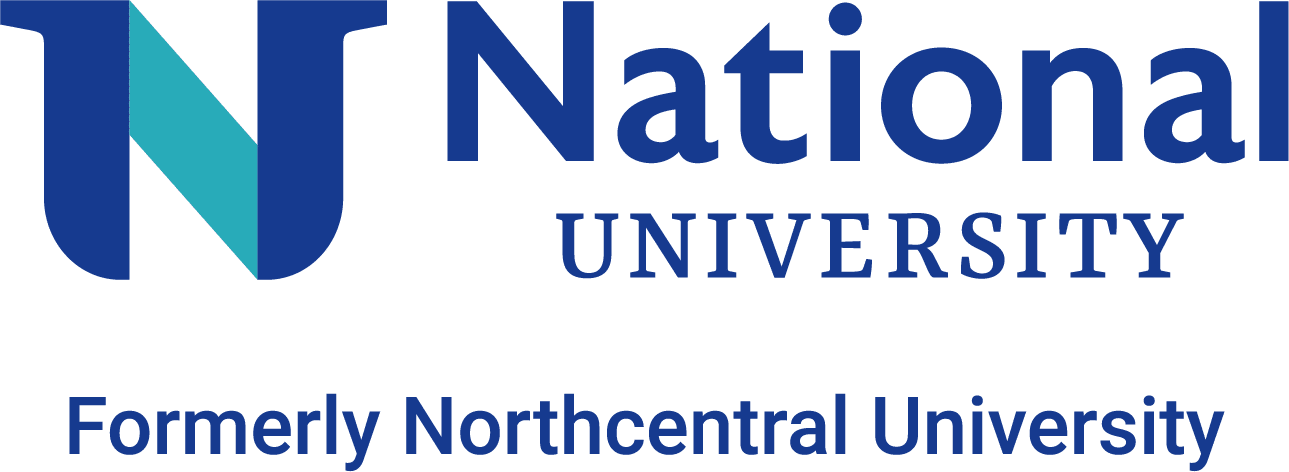 National University : Master of Science in Clinical Mental Health Counseling (Accredited. No GRE. Scholarships Available)
National University : Master of Science in Clinical Mental Health Counseling (Accredited. No GRE. Scholarships Available) Arkansas State University : MSE School Counseling - Crisis & Trauma Concentration (100% Online, No Teaching Experience Required)
Arkansas State University : MSE School Counseling - Crisis & Trauma Concentration (100% Online, No Teaching Experience Required) Colorado Christian University : Clinical Mental Health Counseling, M.A. - Online Curriculum (100% online, or hybrid format. )
Colorado Christian University : Clinical Mental Health Counseling, M.A. - Online Curriculum (100% online, or hybrid format. )While working in this career area, you may work with people from diverse age groups, backgrounds, and life experiences. Your training can include insight into how life circumstances can lead to periodic suicidal tendencies, as well as knowledge into mental health disorders and their effects on human emotion and thinking processes.
During a normal day's work, Self Harm and Suicide Intervention Counselors may work with clients that feel hopeless, lost, or extreme sadness on a daily basis. The goal of treatment for individuals with these psychological conditions is to assess whether their symptoms are related to environmental conditions or evoked due to mental illness.
Establishing self-worth can include treatment that focuses on changing perspective, identifying negative factors within one's personal life, and setting future goals for development. In some cases, counselors in this field may work with clients to help change their environment for optimum emotional growth.
Consider a Featured Online Counseling Program
| School and Program Information | Online Program? Entry Requirements |
Course Information |
|---|---|---|
| Walden University
MS in Clinical Mental Health Counseling
 CACREP Accredited CACREP Accredited |
✔ Online
GRE scores not required |
Mental health counselors play a valuable role in helping people cope with life’s challenges. Walden’s online MS in Clinical Mental Health Counseling program can help you become the competent, compassionate counselor you know you can be. Learn More |
| Walden University
MS Dual Degree in Clinical Mental Health Counseling and School Counseling
 CACREP Accredited CACREP Accredited |
✔ Online
GRE scores not required |
The counseling field is in need of qualified, compassionate professionals like you to meet the demand for services. In Walden's clinical mental health counseling and school counseling dual degree program, you’ll gain the insights and hands-on training to positively impact the lives of children, adults, and families. Learn More |
| Capella University
MS in Clinical Mental Health Counseling
 CACREP Accredited CACREP Accredited |
✔ Online
No GMAT or GRE Required |
Capella’s CACREP-accredited program is designed to help you prepare for state licensure. Gain knowledge and skills in wellness theory and research, relationship building, assessment and treatment, cultural competence and ethical practice. No GRE required. Learn More |
| Liberty University
MA: Clinical Mental Health Counseling (CACREP Accredited)
 CACREP Accredited CACREP Accredited |
✔ Online
Online with required intensives |
Our CACREP-accredited master’s in counseling degree online can help you become an ethical, well-trained mental health counselor with the knowledge, values, and skills you need to empower others to make positive changes in their lives. Online and on campus. Training Champions for Christ since 1971. Learn More |
| Grand Canyon University
Master's Degree in Counseling
HLC and NASAC Accredited |
✔ 100% Online
Over 14 Specializations Available |
Affordable with No Out of State Tuition Learn More |
| The Chicago School
M.A. in Clinical Mental Health Counseling
 CACREP Accredited CACREP Accredited |
✔ Online
Bachelor's Degree Required. |
This online CMHC program prepares students for a career offering mental health services in a variety of settings; helping diverse clients through issues such as depression, anxiety, grief, low self-esteem, stress, relationship difficulties, and suicidal impulses. Learn More |
| National University
Master of Science in Clinical Mental Health Counseling
WSCUC Accredited |
✔ Online
GRE Scores Not Required |
The Master of Science in Clinical Mental Health Counseling is focused on training highly skilled counselors to provide impactful and culturally sensitive mental health services in their communities. Learn More |
| Arkansas State University
MSE School Counseling - Crisis & Trauma Concentration
|
✔ Online
100% Online, No Teaching Experience Required |
Learn to foster the mental health wellbeing of K-12 students who have experienced life-changing traumatic events. Gain the specialized knowledge and tools you need to be fully qualified in supporting students from all backgrounds. Learn More |
| Colorado Christian University
Clinical Mental Health Counseling, M.A. - Online Curriculum
 CACREP Accredited CACREP Accredited |
✔ Online
Bachelor's Degree |
Optional program emphasis in Marriage and Family Therapy and Substance Use Disorders. Learn More |
*Sponsored Counseling Programs
Online CACREP Accredited programs | Online MPCAC Accredited programs
What Degree Levels are There for This Program Area?
If you are interested in becoming an influential and life-changing Self Harm and Suicide Intervention Counselor, your state may require that you obtain a license in professional counseling. This process should begin with entry into bachelor's programs focusing on psychology, mental health, social work, or counseling.
Bachelor's level programs are often used as foundation programs for graduate-level learning and cannot result in licensure. You should choose a bachelor's program that is related to the career you plan to pursue so that you can gain as much knowledge and experience as possible.
The Master's in Counseling can be a great option for upcoming Self Harm and Suicide Intervention Counselors. This degree program looks at counseling from a generalized perspective and provides skills relevant to assessment, diagnosis, and treatment for various mental health disorders.
Alternative degree options can include the Clinical Mental Health degree program, which is a popular option for counselors interested in pursuing careers in acute mental health crisis centers.
The master's in the minimum degree requirement for counseling licensure in each state. However, if you would like to move even higher with your education, you can pursue Doctoral level programs in Mental Health Counseling to help gain access to lucrative careers during your work experience.
Online Master's Programs for this Program
If you are the type of person that wishes to help people work through traumatic events, suicidal thoughts, or self harming behaviors, a Master's in Counseling could be your program of choice for professional training. In all states, licensing agencies require that you engage in accredited degree programs in order to receive your counseling license.
Since the minimum degree requirement for your license is the Master's in Counseling, this is one of the most popular degree options for upcoming professionals in Self Harm and Suicide Intervention Counseling. This 2-3 year program can help you learn skills in identifying stressors, developing treatment plans, and administering counseling techniques to foster healing in your patients.
Online options for the Master's in Counseling are also popular options for you to consider for your enrollment. Online programs allow students to take courses from their own home and can provide similar courses and instructors to traditional programs.
Benefits associated with pursuing your degree online include engagement in courses at any time of day or night, logging in from your own home or anywhere that has an internet connection, and completing your program at your own pace.
The CACREP is the leading accreditation agency for Master's in Counseling programs in the U.S. This organization currently accredits both traditional and online versions of this degree program in order to allow more students the opportunity to pursue careers in this field.
 Walden University - MS in Clinical Mental Health Counseling (CACREP Accredited)
Walden University - MS in Clinical Mental Health Counseling (CACREP Accredited)
 Capella University - MS in Clinical Mental Health Counseling (CACREP Accredited)
Capella University - MS in Clinical Mental Health Counseling (CACREP Accredited)
 Liberty University - MA: Clinical Mental Health Counseling (CACREP Accredited) (CACREP Accredited)
Liberty University - MA: Clinical Mental Health Counseling (CACREP Accredited) (CACREP Accredited)
 Grand Canyon University - Master's Degree in Counseling (NASAC Accredited)
Grand Canyon University - Master's Degree in Counseling (NASAC Accredited)
 The Chicago School - M.A. in Clinical Mental Health Counseling (CACREP Accredited)
The Chicago School - M.A. in Clinical Mental Health Counseling (CACREP Accredited)
 National University - Master of Science in Clinical Mental Health Counseling (WSCUC Accredited)
National University - Master of Science in Clinical Mental Health Counseling (WSCUC Accredited)
Are There Online Programs in this Specific Program Area?
Self Harm and Suicide Intervention Counseling career options can be obtained through training in Clinical Mental Health degree programs. This type of degree program can prepare learners for working with clients that present with serious mental illness, symptoms of hopelessness or dismay, and those that have actively tried to self harm in the past.
Intervention skills can be learned through engagement in master’s level degree programs and clinical experience requirements offered by Master’s in Counseling programs. While programs are not specifically titled for this specific treatment area, the treatment of clients with these symptoms is covered within the generalized counseling curriculum.
After you have completed your Master’s in Counseling or Clinical Mental Health Counseling, you can pursue certification programs to help learn more about your specific focus population. Suicide Intervention Specialists Certification can be gained through short-term training programs and can be added to your resume with your counseling degree program and licensure.
Both degree programs and certificate programs in this field can be found in the online setting, making them highly preferred by busy adults seeking entry into this career field. If you are motivated to be a part of this incredibly important treatment field, you should consider one of the programs provided in the next section.
Top Programs and Availability
Since a lot of students interested in helping people that are struggling with suicidal thoughts and self harming behaviors pursue licensing as counselors in their state, the most popular degree programs in this field are CACREP accredited.
The CACREP provides prospects with a list of accredited degree programs offered in-person, in hybrid format, and online. Online programs can provide you with the opportunity to complete your master’s without having to change your work schedule or spend less time at home with your family.
Oregon State University is one of the many online Master’s in Clinical Mental Health Counseling currently offered to interested students. This 3 year program can allow you to practice your skills in research, symptom identification, and diagnosis through this high-quality training program.
The University of the Cumberlands in Kentucky is another reliable and accredited option that can set you on track for licensure within your state. This university offers accredited master’s programs in Addiction Counseling and Mental Health Counseling for you to utilize during your degree experience.
Each of these programs can provide you with a unique outlook on the field of counseling and the groups that you can serve as a professional in the field. Choosing accredited degree programs can help you to ensure that your hard work pays off with licensure in your state.
Our team encourages you to review your state’s requirements for counseling licensure and certification as a Self Harm and Suicide Intervention Counselor prior to enrolling in any degree program.
Sample Courses for the Masters
While you are engaged in a Master’s in Counseling degree program, you may experience courses that focus on the techniques of high-quality counseling, as well as the scenarios that can lead to suicidal states of mind and self harming behavior. The goal of these programs is to provide you with skills to help intervene in crisis situations and help deescalate individuals in duress.
Crisis, Trauma, and Disaster Response is a course that focuses on emotional reactions to common crisis situations and traumatic events. This course can outline the steps included in a crisis assessment, the prevention of re-victimization, and counseling competencies.
As an intervention counselor for suicidal or self harming clients, it is vital to have skills relevant to accurate responding, quick thinking, and client consideration when working in the field. This course can help frame your state of mind for working with clients in crisis situations.
Diagnosis and Assessment is another course included in this program that can teach you more about clinical diagnoses such as Depression, Anxiety, Personality Disorders, and other abnormal psychological impairments. Knowledge of the symptomatic presentations of these disorders and the assessment tools used to diagnose patients can help you identify the underlying conditions that may be causing your client’s suicidal behavior.
In order to provide well-rounded knowledge of all psychological aspects of Self Harm and Suicide Intervention Counseling, students in these degree programs may also engage in course work related to Psychopharmacology.
Learning about different psychotropic medications, their effects on personality and behavior, and their prevalence within society can help you gain insight into medication and behavior in your clients. This knowledge can also be beneficial when referring clients to psychiatrists or psychiatric nurse practitioners for medication management.
Path to Working in this Area
If you are ready and prepared to begin your educational path to becoming a Self Harm and Suicide Intervention Counselor, there are certain paths that you can take to your intended career field. The most basic route is through CACREP-accredited degree programs and licensure within your state.
Your first step on your path to success should be enrollment in a bachelor’s degree program. You can choose foundation programs in psychology or counseling to begin your learning experience, since each of these programs can provide you with knowledge that is continued in Master’s in Counseling programs.
The bachelor’s generally takes around 4 years to complete, with the first 2 years consisting of general education courses and the last 2 years focusing on your specialization entirely. Bachelor’s programs in the U.S. are offered at in-person universities and those online.
The next step for you to pursue is the Master’s in Counseling. These programs can be found both online and in the traditional environment and offer assessment, diagnosis, and treatment training for upcoming professional counselors.
Choosing a CACREP-accredited program can help you to ensure that you can obtain your license after meeting all of your state’s guidelines for Licensed Professional Counselors. You should check with your state on its requirements of professionals in this field.
Licensing also includes an experience requirement that generally takes place after your master’s program. After graduation, you can work for counseling agencies under the supervision of a licensed counselor, providing counseling services to clients in the real-world setting.
This requirement includes 2-3 years of performance feedback and learning from licensed professionals, which can provide you with valuable knowledge to use when working independently. This learning opportunity can also take place in specialty clinics or any other location with licensed counselors willing to supervise you.
The last step before applying for licensure is completing the counselor’s board examination. This includes concepts from your degree program and your experience requirement and is a final blockade to your licensure.
Once you have passed your exam, you can complete your application and documentation requirements for licensing in your state.
Important Organizations to Know
As you transition into a career in Self Harm and Suicide Intervention Counseling, you can become an influential part of professional organizations focused on treating patients within this treatment field. Professional organizations can help you learn more about your treatment group, meet others in your field, and have access to current research in your field.
The American Association for Suicide Prevention is a non-profit organization that focuses on the prevention of suicide in the U.S. This organization includes members of the counseling profession, affected family members of suicide and self harm, and concerned members of the public.
As a counseling professional, you can become a valuable member of this organization that seeks to share information, learn more about the signs and symptoms, and administer interventions to help people in need. This is one of many suicide-oriented organizations in the U.S. to consider.
The American Counseling Association is a widespread professional organization that has an open membership guideline for counselors in all fields. Within this organization, there are subfields for depression and suicide that can be beneficial for counselors in this specialty area.
Membership can include access to research, new treatments, and networking that can be valuable to your growth in this field. Many new counselors in the field become members of this organization in an attempt to find support and guidance as they get comfortable in their new career.
Professional organizations like the American Association of Suicidology can provide new professionals with insight into the study of these mental illnesses and methods for prevention that are currently being used or tested for future use.
Career Options
Once you have completed the educational and practical requirements needed to become a Self Harm and Suicide Intervention Counselor, you can work with individuals in the community that are truly in need of guidance. The skills that you learn during your experience can assist you in providing a helping hand to people feeling hopeless, afraid, and overwhelming thoughts of self harm.
Professionals in this specialty area can work for crisis response centers as crisis or suicide counselors. Part of the responsibility of counselors in this field is to intervene when a person has vocalized the desire to take his or her own life or when others report dangerous self-harming behavior.
General counseling centers can also hire Self Harm and Suicide Intervention Counselors to work with clients that have a history of chronic depression or a suicidal behavior. Since people with these mental illnesses often struggle throughout their lifetime, it can be critical to have regular care providers to assist along the way.
In some cases, social service agencies, hospitals, and emergency response teams can employ counselors in this field as part of their well-rounded team. Your role in these organizations may be to respond when needed during life changing events, natural disasters, or medical emergencies.
If you choose to pursue independent licensure through your state, you can also work as a private practice counseling professional within your local area. Some professionals choose this route in order to make their own hours, serve the population that means the most to them, and operate their own business.

 Arkansas State University - MSE School Counseling - Crisis & Trauma Concentration
Arkansas State University - MSE School Counseling - Crisis & Trauma Concentration Colorado Christian University - Clinical Mental Health Counseling, M.A. - Online Curriculum
Colorado Christian University - Clinical Mental Health Counseling, M.A. - Online Curriculum
